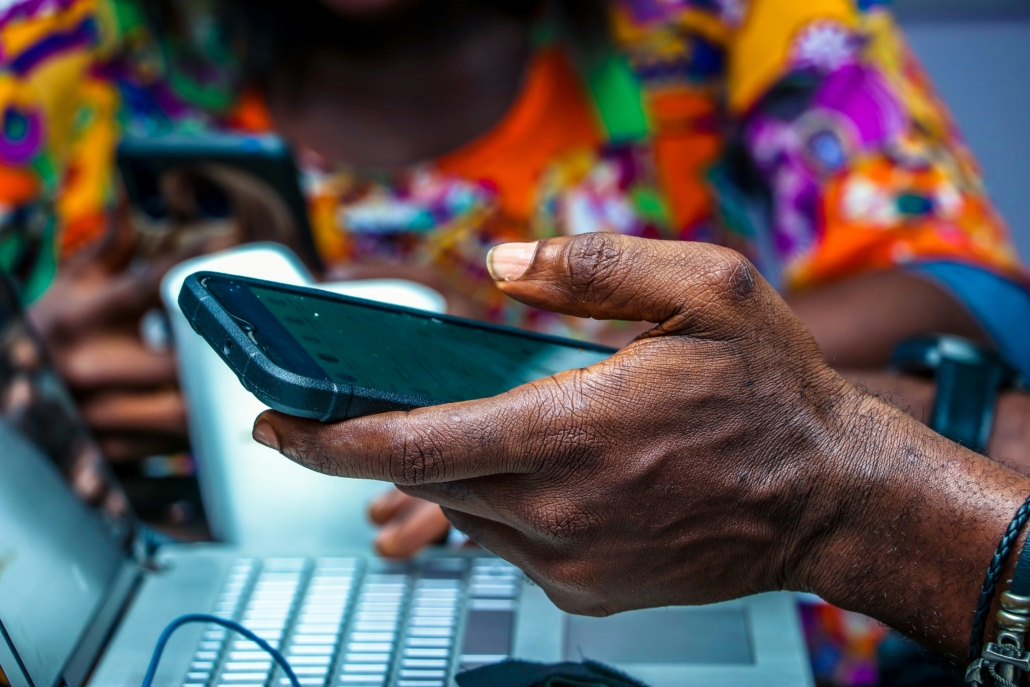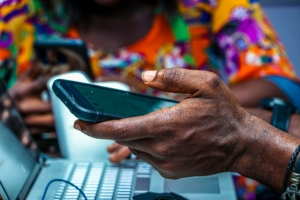
Ghana’s Tech Innovation in Education
 Ghana has embarked on a transformative journey to digitize its education system in recent years. Ghana’s shift aims to improve tech innovation in education and learning outcomes, bridge educational disparities and equip students for a technology-driven global economy. While significant progress has been made, challenges persist, particularly in ensuring equitable access across urban and rural communities.
Ghana has embarked on a transformative journey to digitize its education system in recent years. Ghana’s shift aims to improve tech innovation in education and learning outcomes, bridge educational disparities and equip students for a technology-driven global economy. While significant progress has been made, challenges persist, particularly in ensuring equitable access across urban and rural communities.
Background
As Ghana works toward this next chapter of future learning, it is essential to note that the digitalization of education is a global reform trend. As Olga N. Machekhina describes in Revista Espacios, it is a powerful force for modernizing educational systems. Ghana has embraced this wave through various national strategies. The Education Strategic Plan (2018–2030) and the ICT in Education Policy Framework (2015) illustrate this commitment, emphasizing teacher training, curriculum reform and early school ICT exposure.
A notable step came in 2023 to include tech innovation in education with the launch of the ICT Competency Framework for Teachers. Developed by the Ministry of Education, the National Council for Curriculum and Assessment (NaCCA) and other stakeholders, this framework supports educators in integrating technology effectively into their teaching practices. Higher education institutions like the University of Cape Coast also support digitalization through platforms such as Moodle, streamlining learning for students and lecturers.
Government Initiatives
The National Digital Literacy Program, launched in 2013, seeks to train 10 million Ghanaians in digital skills by 2030. It focuses on equipping individuals with essential digital skills to participate effectively in the digital economy. Furthermore, in 2015, Ghana released its ICT in Education Policy Framework, emphasizing teacher training in digital skills and introducing ICT as a topic beginning in primary school. The policy sought to transform the educational system to improve the quality of teaching and learning at the various levels of education and expand access to education, training and research resources and facilities to produce a cutting-edge and skilled workforce for the growth of the country’s economy.
The government’s efforts intensified during the COVID-19 pandemic through platforms like Ghana Learning TV and iCampus. Despite good intentions, accessibility remained a significant issue. Key findings from a report titled “Ghana’s E-Learning Program During the Pandemic Presents Access Challenges for Many Students” highlight significant barriers to digital learning. Fewer than three in 10 Ghanaian households (28%) own a computer, with access even lower among rural and low-income families, only about one in seven (14%).
While 71% of households nationwide have reliable electricity from the national grid, this figure drops to 59% in rural areas and 55% among impoverished households. An additional 5% of households rely on alternative electricity sources such as solar panels, batteries or generators. In response, in 2024, Ghana launched the Smart Schools Project to distribute 1.3 million free tablets to high school students nationwide. The initiative began with 15 schools and reflects the government’s ongoing push toward digital inclusivity.
Grassroots Innovation: Lemvon’s Story
However, government programs are not the only drivers of change. An 18-year-old developer, Lemuel Grigsby, created Lemvon, a school management system that uses AI to personalize learning. In an interview with The Borgen Project, Grigsby shared that he turned to app development to heal after losing his older brother in 2020. Grigsby, motivated by his educational struggles, developed a comprehensive platform that manages everything from exam records to fee processing.
His AI-powered Learning Management System (ALM) adapts to each student’s pace, learning style and language. He also notes that the system allows parents to track their children’s academic performance and attendance. In partnership with the Ghana Association of Private Schools, Lemvon is now available through a 92-day free trial, allowing schools to evaluate its impact. Grigsby hopes these free trials will produce strong results and expand to rural communities.
Other Nonprofits Bridging the Gap
Other startups and nonprofits are contributing significantly to Ghana’s tech innovation in education. Street Library Ghana is a volunteer-driven social enterprise that provides library services in rural communities through mobile vans, book kiosks and digital access. It aims to improve literacy and education among children and youth in underserved areas.
The Ghana Code Club is an after-school program teaching children computer programming skills. Since its inception, it has trained more than 100,000 students, 3,5,00 teachers and several computer centers in Ghana.
Challenges in Digital Education
Despite these positive developments, gaps remain. According to the Ghana Living Standards Survey (2020), only 39.7% of Ghanaians had internet awareness, with a stark urban-rural divide (51.6% vs. 27.4%). Africa Education Watch (2024) reports that just 15% of public primary schools and 13% of junior high schools had functioning ICT labs by the end of the 2022/2023 academic year.
Infrastructure challenges are acute. Although national electricity coverage exceeds 80%, only 44% of primary schools and 63.9% of junior high schools had access to electricity as of 2020. Teacher preparedness is another hurdle: only 53% have received ICT training and 22% of students have basic ICT skills. According to Grigsby: “These issues not only create barriers but impede results for startups like Lemvon and others trying to help.”
Conclusion
Both national strategies and youth-led innovation are powering Ghana’s tech innovation in education. From free tablets to AI-driven learning platforms, the landscape is evolving. However, systemic issues like poor infrastructure, teacher training gaps and data literacy have to be addressed to ensure lasting impact.
Dr. Peter Anti of the Institute of Education Studies noted, “Instead of focusing on unnecessary projects in Accra, we need to address the actual issues in schools where the data shows there are urgent needs.” Grigsby echoes that sentiment: “The fact that we continue to face these basic issues is a sign that our policies have been poorly planned and targeted. We must use data more effectively to direct our efforts and solve the problems head-on.”
– Dela Michel
Dela is based in Rockville, MD, USA and focuses on Technology and Solutions for The Borgen Project.
Photo: Unsplash

